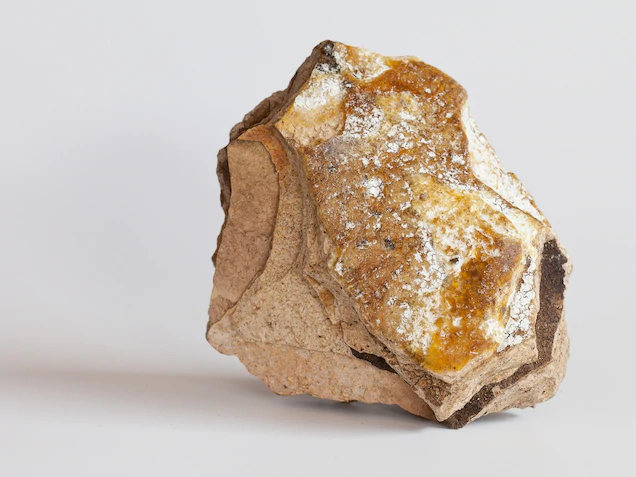Rapid Fire
Rapid Fire Current Affairs
- 22 May 2023
- 7 min read
Centre of Excellence on Sustainable Land Management
The Centre of Excellence on Sustainable Land Management (CoE-SLM) was formally inaugurated on 20th May 2023 at the Indian Council of Forestry Research and Education (ICFRE), Dehradun. This initiative was announced by the Prime Minister of India during the 14th Conference of the Parties (COP-14) of the United Nations Convention to Combat Desertification (UNCCD) in 2019. The CoE-SLM aims to tackle land degradation issues through sustainable land management practices, promote South-South Cooperation, and contribute to achieving Land Degradation Neutrality (LDN). By leveraging technical support, capacity building, and knowledge sharing, the CoE-SLM intends to restore degraded land, align with international conventions and goals such as the SDGs, Convention on Biological Diversity, and UNFCCC, and address the impacts of land degradation on greenhouse gas emissions and biodiversity loss. The establishment of the CoE-SLM reflects the Indian government's commitment to environmental conservation and combating climate change.
Read more: Dialogue on Desertification, Land Degradation and Drought
DRI Busts Ambergris Smuggling Gang
The Directorate of Revenue Intelligence (DRI) has made a significant breakthrough by busting an Ambergris smuggling gang racket, which poses a threat to the nation's flora and fauna.
The DRI is an Indian intelligence agency that functions under the Central Board of Indirect Taxes and Customs (CBIC), Ministry of Finance. It was constituted in 1957 as the apex anti-smuggling agency to counter the menace of smuggling and commercial frauds related to international trade and evasion of customs duty. The DRI also works as the lead agency for Anti-Smuggling National Coordination Centre (SCord), which coordinates the efforts of various agencies involved in anti-smuggling activities. The DRI has a network of regional and zonal units across the country, as well as overseas liaison offices in some countries.
Ambergris, known as "whale vomit," is a solid waxy substance that originates in the intestines of sperm whales. Produced by only around 1% of these whales, ambergris contains alkaloids, acids, and a compound called ambreine, similar to cholesterol. It is often found floating on the surface of water bodies and occasionally washes up on coastlines. Due to its high value, ambergris is often referred to as "floating gold". The main use of ambergris is in the perfume industry, particularly for creating musk fragrances. Countries like Dubai, known for their large perfume market, have a high demand for ambergris. Additionally, ancient Egyptians used it as incense, and it is believed to have been used in traditional medicines and as a spice. However, due to its value, ambergris has become a target for smugglers, especially in coastal areas.
Read more: Directorate of Revenue Intelligence (DRI) , Ambergris
Arsenic Exposure
A recent study has highlighted the potential cognitive impacts of even low levels of arsenic consumption on children, adolescents, and young adults in India. The research revealed that individuals exposed to arsenic displayed reduced grey matter and weaker connections in crucial brain regions responsible for concentration, task-switching, and information storage. It suggests that chronic exposure to arsenic could be a "silent pandemic" affecting a significant portion of the global population. The researchers analysed that the arsenic exposure, primarily through food intake, was strongly correlated with the consumption of rice, especially in south India. However, cooking rice in a specific way can significantly reduce the naturally occurring arsenic content by over 50% in brown rice and 74% in white rice without compromising the rice's micronutrient content.
The research is part of the C-Veda initiative, a collaborative effort between India and the United Kingdom to assess the impact of various risk factors on cognitive development, including vulnerable populations in industrialising and industrialised societies.
Arsenic is an odourless and tasteless metalloid widely distributed in the earth’s crust. It is naturally present at high levels in the earth crust and groundwater of a number of countries. It is highly toxic in its inorganic form. Arsenicosis is the medical word for arsenic poisoning, which occurs due to accumulation of large amounts of arsenic in the body.
Read more: Arsenic Contamination
Annual Forex Spends up to ₹7 Lakh Exempted from TCS
India will not impose a 20% tax on spending of up to 7 lakh rupees through international debit and credit cards in a financial year to eliminate any procedural uncertainties. This decision comes in response to concerns raised regarding the application of Tax Collection at Source (TCS) to small transactions under the Liberalised Remittance Scheme (LRS) from July 1, 2023.
It clarified that expenditures up to ₹7 lakh per year would neither fall under the LRS nor be subject to TCS. To facilitate this exemption, the necessary changes to the Foreign Exchange Management (Current Account Transactions Rules), 2000 would be separately issued.
Additionally, the ministry emphasised that the existing beneficial TCS treatment for education and health payments would continue, with a TCS rate of 5% for such payments up to ₹7 lakh per year.
Also, the Reserve Bank of India recently introduced a new provision under the LRS, allowing individuals to make forex remittances of up to USD 2.5 lakh annually.
Read more: Liberalised Remittance Scheme, Reserve Bank of India.





